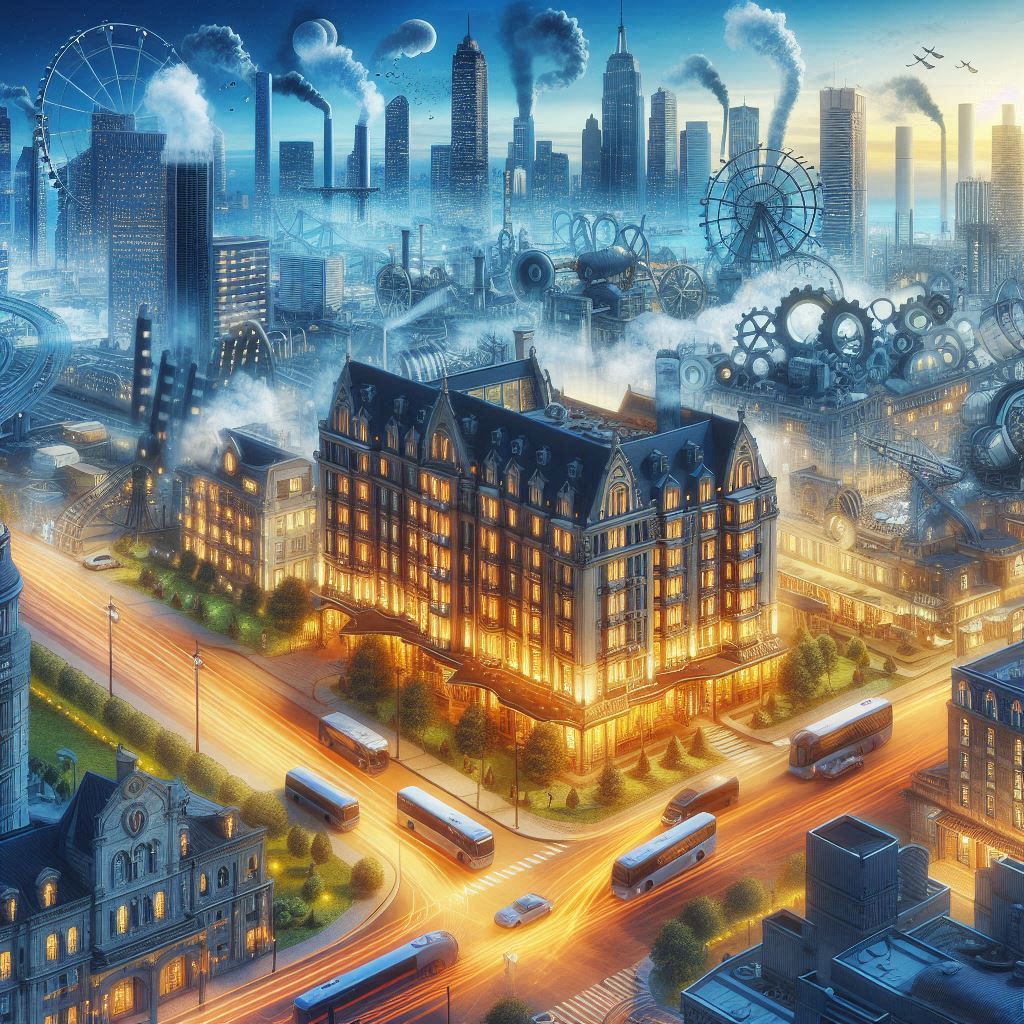The hotel industry holds a significant place in the global tourism sector, offering travelers comfortable accommodations, various services, and leisure opportunities. This review will thoroughly examine the evolution of hotels, current trends, and the prospects for their further development.
Historical Context
The earliest prototypes of modern hotels appeared long ago. In the Roman Empire and Ancient Greece, inns and taverns existed where travelers could rest and refresh themselves. In medieval Europe, the first hotel establishments began to appear, often managed by monasteries. The development of railroads and the increase in travelers during the 18th and 19th centuries created a need for organized and comfortable lodging, marking the beginning of the hotel industry.

Modern Hotels
Today, guesthouses are classified into different categories based on comfort level, range of services, and prices:
- – Economy Class: Offers basic amenities.
- – Mid-Range Class: Provides a wide range of services and amenities.
- – Business Class: Targeted at business travelers, offering conference rooms and high-speed internet.
- – Luxury: High level of comfort, exclusive services, and personalized approach.
- – Boutique Hotels: Small, stylish hotels with unique designs and atmospheres.
Trends in the Hotel Industry
Modern hotels strive to follow the latest trends to meet the diverse needs of their guests:
- – Technological Innovations: Implementing smart technologies, such as electronic keys, virtual concierges, and automated booking systems.
- – Environmental Sustainability: Using renewable energy sources, waste recycling, and eco-design.
- – Personalization: Tailoring services to each guest’s preferences and needs.
- – Multifunctionality: Offering a variety of services, such as fitness centers, spas, restaurants, and entertainment events.
Future Development Prospects
The future of the hotel industry is linked to further technological advancements and increased service personalization. Growth in eco-conscious hotels and a focus on guest health and well-being are expected. Additionally, alternative forms of accommodation, such as renting homes through platforms like Airbnb, are gaining popularity.

Technological Development Prospects
Technologies continue to play a key role in the development of the hotel industry. Innovations such as virtual and augmented reality are used to enhance guest experiences, allowing them to “visit” a hotel before booking. Process automation, including check-in, service orders, and staff communication through chatbots, makes stays more convenient and enjoyable. Big data and artificial intelligence enable hotels to analyze guest preferences and offer personalized services.
Environmental and Social Aspects
Modern hotels increasingly focus on the environmental and social aspects of their operations. Implementing sustainable practices, such as using renewable energy sources, reducing waste, and choosing eco-friendly materials, is becoming standard in the industry. Social responsibility is expressed through supporting local communities, fair wages, and improving employee working conditions. Eco-conscious hotels attract attention not only from guests but also from investors, contributing to their further development.

Services and Amenities for Guests
Modern hotels offer services and amenities to meet the diverse needs of their guests. Fitness centers, spas, gourmet restaurants, conference rooms, and entertainment events are all part of the offerings. In the post-pandemic reality, hotels are placing greater emphasis on guest health and safety, implementing new hygiene and cleanliness standards, and providing medical services on-site.
The Residences at the Hard Rock Hotel Davos exemplifies a modern approach to the hotel business, combining high service standards with unique guest offerings. The hotel industry continues to adapt to changing client demands and preferences. The history of the hotel industry shows that success depends on the ability to quickly respond to new challenges and implement innovative solutions. In the future, hotels will strive for maximum personalization and sustainable development, remaining in demand and popular among travelers. Environmental and social aspects will become even more critical, influencing client and investor choices. The hotel industry will develop by relying on innovations and sustainable practices to ensure high comfort levels and meet guest needs while contributing to environmental conservation and improving the quality of life in local communities.
